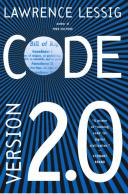Книга: Code 2.0
Latent Ambiguity
Latent Ambiguity
The worm tells a different story still. Though it is a technology for searching, the worm’s function differs from “searching” in real space. In real space, a search carries costs: the burdens of the search, the insecurities it might create, the exposure it might make possible to invasions beyond a legitimate reach[23]. The worm erases those costs: The burden is gone, the search is (practically) invisible, and the searching technology is programmed to find only what is illegal. This raises a question about how such a search should, under the Constitution, be understood.
A fair view of the Constitution’s protections could go in either of two ways. It may be that we see the worm’s invasion as inconsistent with the dignity that the amendment was written to protect[24], or it may be that we see the invasion of the worm as so unobtrusive as to be reasonable. The answer could be either, which means that the change reveals what I will call “a latent ambiguity” in the original constitutional rule. In the original context, the rule was clear (no generalized search), but in the current context, the rule depends upon which value the Constitution was meant to protect. The question is now ambiguous between (at least) two different answers. Either answer is possible, depending upon the value, so now we must choose one or the other.
You may not buy my story about the worm. You may think it is pure science fiction. But by the end of the book, I will convince you that there are any number of cases in which a similar ambiguity troubles our constitutional past. In many of them our Constitution yields no answer to the question of how it should be applied, because at least two answers are possible — in light of the choices that the framers actually made and given the technologies of today.
For Americans, this ambiguity creates a problem. If we lived in an era when courts felt entitled to select the value that produced an answer that made the most sense in the context, there would be no problem. Latent ambiguities would be answered by choices made by judges — the framers could have gone either way, but our judges choose to go this way.
But we don’t live in such an era, and so we don’t have a way for courts to resolve these ambiguities. As a result, we must rely on other institutions. My claim is a dark one: We have no such institutions. If our ways don’t change, our constitution in cyberspace will be a thinner and thinner regime.
Cyberspace will present us with ambiguities over and over again. It will press this question of how best to go on. We have tools from real space that will help resolve the interpretive questions by pointing us in one direction or another, at least some of the time. But in the end the tools will guide us even less than they do in real space and time. When the gap between their guidance and what we do becomes obvious, we will be forced to do something we’re not very good at doing — deciding what we want, and what is right.




